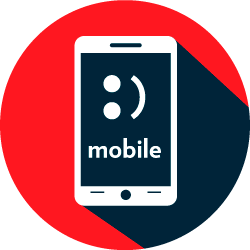Identity Theft & Phishing

BEWARE OF "PHISHING" & OTHER ID THEFT SCHEMES
Phishing (pronounced "fishing") is the latest form of identity theft. It's when thieves act as if they are representing trusted organizations or institutions and try to hook you into providing personal information.
Once you're hooked, the thieves can do serious damage to your financial accounts. They can dupe you into providing your Social Security Number, financial account numbers, PIN or passwords, mothers' maiden names and other personal information.
HOW PHISHING WORKS
The most common form of phishing is by email. For instance, you could receive an email from Community 1st Credit Union asking you to reconfirm your personal information. Unfortunately, this email is not from us, but from a phisher pretending to be a representative of our organization.
Typically, the email contains a link to a website that looks like a near-replica of our site. You click the link and add your personal information, which goes right into the hands of identity thieves. It's important to not respond to these emails.
Phishers also use the phone to hunt for personal information. Some will pose as employers and then call or send e-mails to people who have listed themselves on job search websites.
BE ALERT
While it is true that phishing scams can be sophisticated, the following red flags are often indicators that something is suspicious:
- Someone unexpectedly contacts you and asks for your personal information, such as your financial institution account number, an account password or PIN, credit card number or Social Security Number. Community 1st Credit Union would not contact you for that information.
- The sender, who is supposedly a representative of our organization, asks you to confirm that you have a relationship with us. We have that information on record.
- You are warned that your account will be shut down unless you "reconfirm" your financial information.
- You receive emails or phone calls requesting personal or account information.
EMAIL POLICY
Community 1st Credit Union's Email Policy:
- We do not send emails requesting members to update their account information.
- We do not request personal information via email unless the communication was first initiated by a member request.
Community 1st Credit Union is doing everything we can to counter this type of criminal activity. Your account protection is our top priority. If you receive an unsolicited email or phone call that seems suspicious, and is allegedly from our organization, please do not reveal any information. Call us at (800) 247-7328 to verify that the request is legitimate.
The safety of your information is of utmost concern at Community 1st. We’ve taken strong measures to ensure the security and safety of your accounts and our online banking system. By working together, we’ll have greater peace-of-mind.




